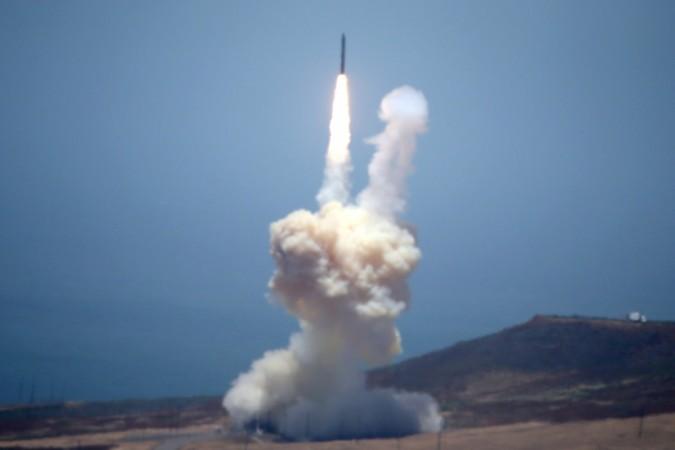
The Pentagon has confirmed that it has successfully completed an intercontinental ballistic missile interception test from its California base aimed at ensuring the effectiveness of the anti-missile system amid growing tensions with North Korea.
The interception took place as scheduled on Tuesday over the Pacific Ocean, when a rocket launched from the Vandenberg base destroyed an intercontinental missile launched from the Kwajalein Atoll in the Marshall Islands, Efe news reported.
"The intercept of a complex threat-representative intercontinental ballistic missile (ICBM) target is an incredible accomplishment," Vice Admiral Jim Syring, director of the US Missile Defence Agency, said in a statement.
Syring stressed that "this system is vitally important to the defence of our homeland, and this test demonstrates that we have a capable, credible deterrent against a very real threat".
This is the first time that the Pentagon has attempted to shoot down an intercontinental missile.
The test was carried out two days after North Korea fired a missile that flew some 450 km to the east and fell into the waters of Japan's exclusive economic zone (EEZ).
North Korea continues to take steps towards developing long-range missile technology capable of reaching the US territory, as well as designing a nuclear warhead compact enough to fit in a missile.
The Pentagon, for its part, is conducting a review of its nuclear deterrent system, which includes intercontinental missiles, strategic bombers and nuclear submarines, to determine if any modernisations are needed.


!['Kaise ho bhai..': PM Modi shook hands with Akshay Kumar at a media summit in Delhi [Watch] 'Kaise ho bhai..': PM Modi shook hands with Akshay Kumar at a media summit in Delhi [Watch]](https://data1.ibtimes.co.in/en/full/806317/kaise-ho-bhai-pm-modi-shook-hands-akshay-kumar-media-summit-delhi-watch.jpg?w=220&h=135&l=50&t=40)


!['Kaise ho bhai..': PM Modi shook hands with Akshay Kumar at a media summit in Delhi [Watch]](https://data1.ibtimes.co.in/en/full/806317/kaise-ho-bhai-pm-modi-shook-hands-akshay-kumar-media-summit-delhi-watch.jpg?w=220&h=138)


!['Kaise ho bhai..': PM Modi shook hands with Akshay Kumar at a media summit in Delhi [Watch]](https://data1.ibtimes.co.in/en/full/806317/kaise-ho-bhai-pm-modi-shook-hands-akshay-kumar-media-summit-delhi-watch.jpg?w=220&h=135)


